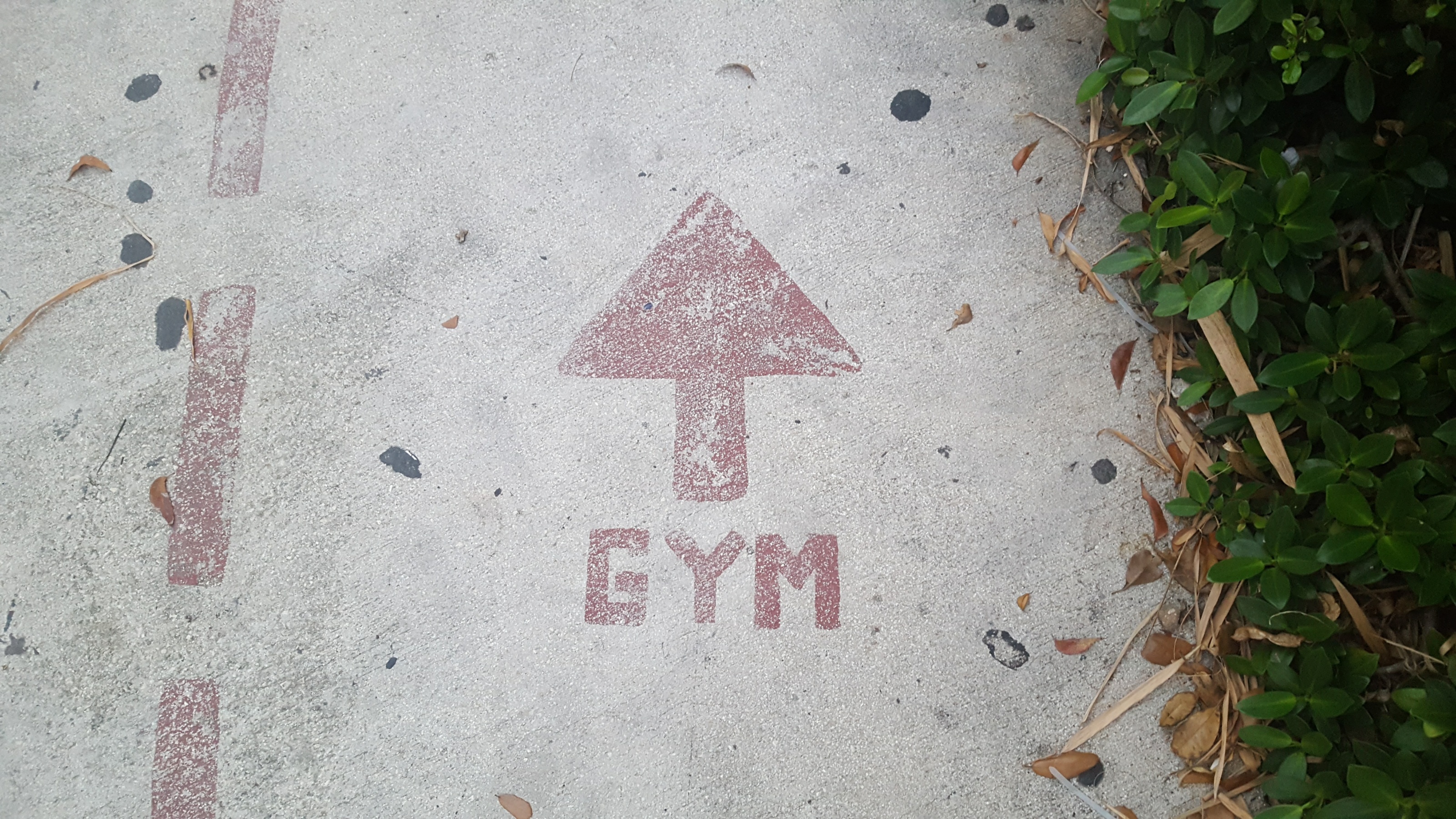Note: This post was originally published on April 8th. We’ve since updated it with an addendum on one way Class Pass is using behavioral science in a negative way.
#1 Their pricing encourages usage
ClassPass is becoming known for its unique approach to fitness. Their movement and classes are inspired by how people exercise in their own lives, economically best option for people who like to work out is to get a gym membership. Gym memberships allow people to go to the gym whenever they want and as many times as they want. Solving for access, Class Pass will always be a worse deal. Class Pass gives you a certain amount of credits per month. If you don’t use them, you lose them. The middle option is just 3–5 visits a month.
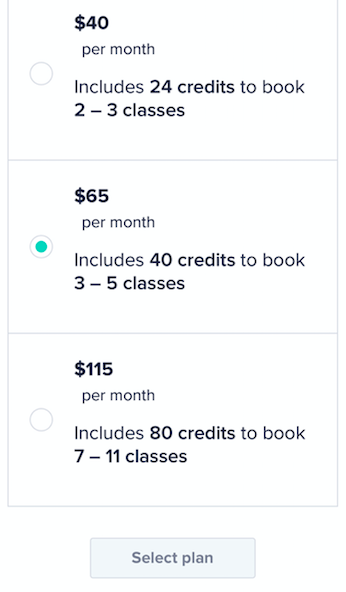
However, that is the genius of Class Pass.
By giving members a target (40 credits) and a deadline to use them (a month), the member is forced to think about when and how they will use their credits. While possible, it would be painful to wait and use them all in the last couple days of the month. Instead, one must plan ahead, perhaps do a class every week. People who work in game design also use this trick. They help players plan ahead within the game construct and have found it to be a successful way to encourage repeat usage. In many popular games you can’t continue playing for some certain period of time. For example, they tell you to wait an hour until you can water your garden again. If you don’t water your garden the plants will die. By giving the user a plan (come back in an hour) and a deadline (when the plants die) usage increases.
Class Pass piles it on further. Once you miss a week, you feel motivated to catch up and avoid losing your credits at the end of the month. This ‘use it or lose it’ rule creates a strong aversion to waste that motivates you throughout the month. You know you will waste your credits if you don’t use them soon.
Relative to the all-you-can-eat gym membership model, Class Pass forces people to think about how they will use the service each month. The pricing model encourages usage.
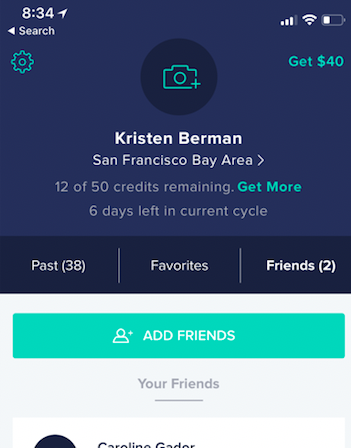
#2 You enter a Ulysses contract every time you reserve a class
A ulysses contract is a freely made decision that works to bind oneself in the future. Advanced directives are the ultimate ulysses contract — you make one when you are healthy and bind yourself to your end-of-life decisions. It’s very difficult to get out of it at the point you get sick and need to use it.
With Class Pass you reserve a class for the future. For example, it’s Monday and I can reserve a class for Wednesday night. When Wednesday night comes and I bail, I’ll be charged a cancellation fee for not showing up.
This fee ends up serving two purposes:
- It helps people pre-plan. If you know there is a penalty for canceling, it may be worth double checking the calendar to ensure you will attend prior to booking the class.
- It gets people to sign up for classes in a “cold” state. When you sign up for a class, you’re making decisions on behalf of your future self and not today’s self. You’re always a better person in the future. You’re someone who workouts at 6am. Planning for the future self could be problematic if the system didn’t lock you into your intention. But because there is a fee, you’re less tempted to sleep in when the time comes for that aggressively early class. Or at minimum when Wednesday night arrives and my friend calls me for drinks, I’ll have an excuse. I’m already locked into my Class Pass commitment and don’t want to pay the fee to back out.
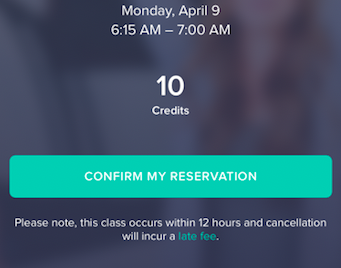
#3 They help you follow through on your intentions
Class Pass doesn’t put the burden on you to remember when your class is. They work hard to ensure you’ll meet your commitment, get in a sweat and avoid that fee. Prior to the class they send push reminders and emails. They even do the ultimate behavioral intervention — they help you put it on your calendar.
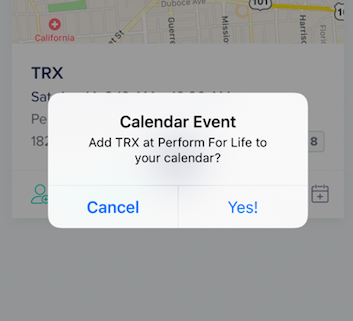
And, when you don’t have a class coming up, they recommend ones you’ve already done before.
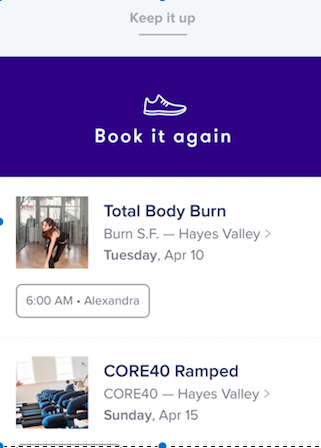
Class Pass also makes it easy to go with friends. While that’s obviously going to be fun, your friends also serve as a commitment device and lock you in to attend. You definitely don’t want to back out on a friend you’ve committed to meet for a 6am class. That’s much worse than the fee!
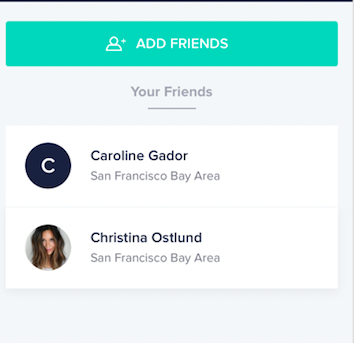
Class Pass is the best app we have seen in awhile that encodes behavioral principles in the core of its product and design.
NEW UPDATE: Here’s where Class Pass gets it wrong
In this post, we wrote about how Class Pass uses behavioral science for good. Through its design and features, it helps Class Pass users do more of what they’ve purportedly signed up to do: work out. That is key: Class Pass is aligning its design with the user’s intent.
The problem comes when a user decides to cancel her subscription. In this case, Class Pass adds far too much friction that tries to get in the way of allowing the user do what she wants to do. One of the main findings of behavioral science is that friction (even small) can have significant effects on people’s behavior, and in this case the friction is very high:
- It takes several steps to find the option to cancel
- Cancellation must occur over chat, creating a significant unnecessary barrier. It would be much easier if it were just a cancellation button.
- During the chat, the user must not only explain her decision, but also wait for over a minute for the Class Pass rep to respond. This delay is another time cost that is being incurred on the user, another point of friction that could cause the user to drop off and not follow through on canceling.
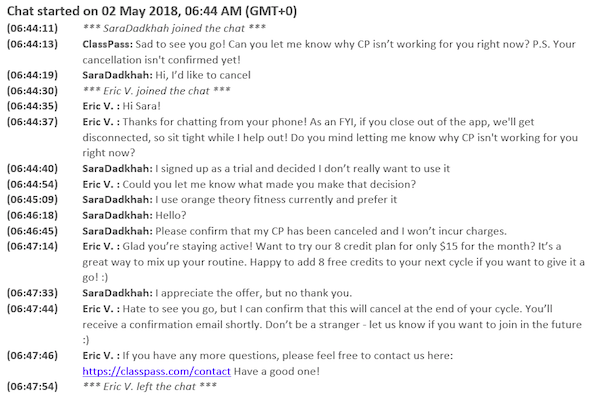
4. Users are told that there is a $79 re-activation fee should if they choose to rejoin. This is not a true cost but an artificial manipulation of 1) regret aversion and 2) our irrational desire to keep doors open. (←click link!)
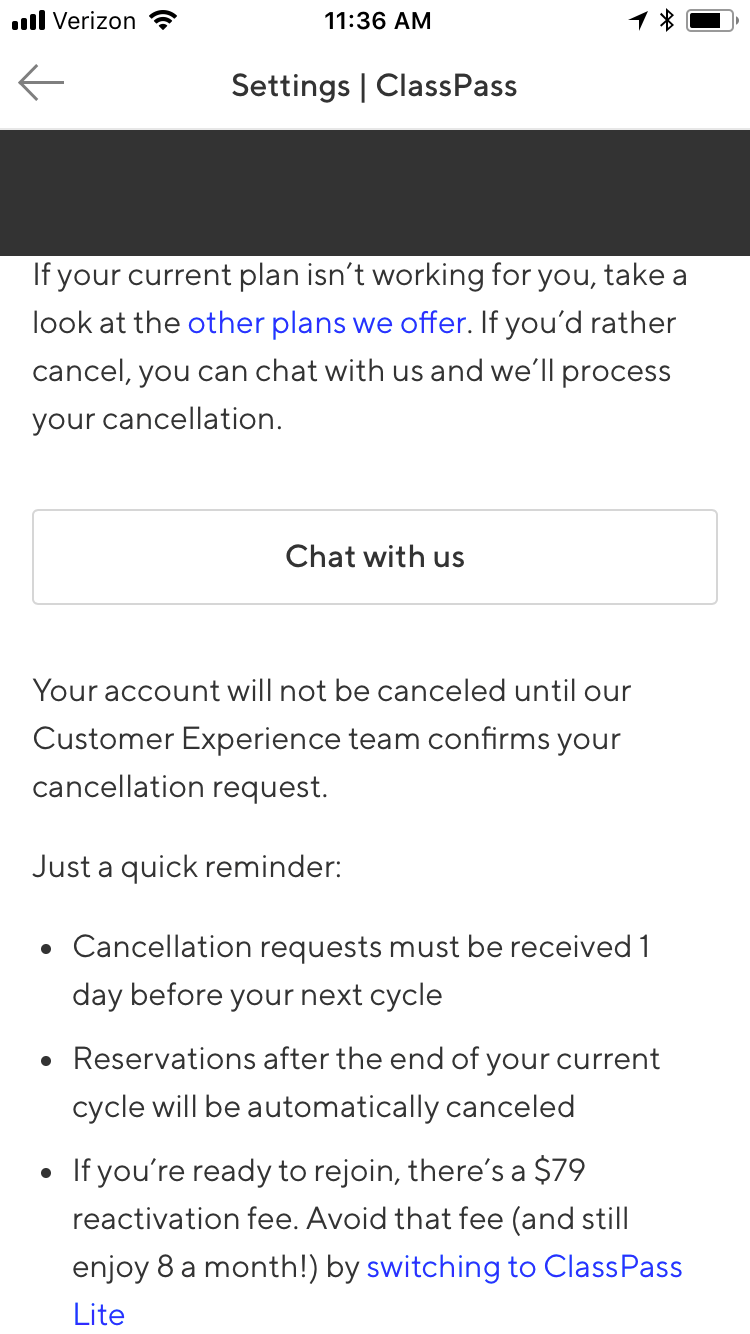
$79 is such a high fee that as a user it makes canceling feel like you’re saying “I will never use Class Pass again.” That sounds scary. We’re wired for optimism, and we’re far more likely to think, “Well, there’s a chance I will start working out later.” We want that option to stay open. We don’t want to regret feeling like we’ve lost that option.
All of these are ways in which Class Pass sets up too much friction in the cancellation process. The user wants to cancel — let her do so easily. Align your design with her goals and desires; it’s the moral thing to do.
Curious about ethical design? Here is a philosophy we like.
Want to learn more about behavioral design? Join our Behavioral Economics Bootcamp today.
